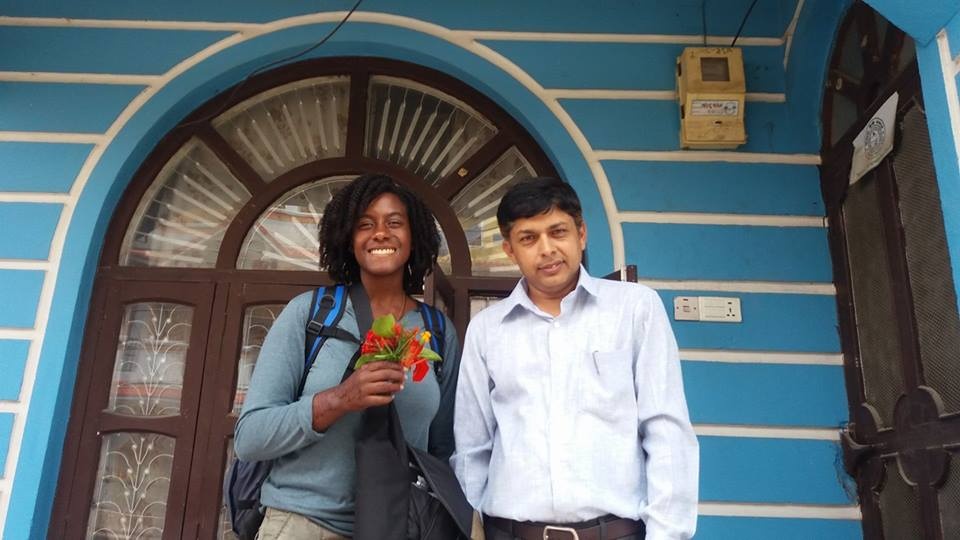
Jillian Eugene (USA)
Overview
Volunteering at the Nepal Friendship Society has been a really nice experience. For two weeks I worked on an education project in Chitwan, Nepal, with the ultimate goal of decreasing the disparities between public school education and private school education, by helping students from disadvantaged backgrounds to improve their English. My role as a native English speaker and ESL teacher was to help students improve their overall English skills, but with a main focus on conversational fluency and comprehension. A main topic within the English medium was environmental conservation, and the importance of taking care of the environment.
The Nepal Friendship Society is an organization lead by Birendra Poudel.
The Students During my time volunteering I worked with a group of 6 teenage students in the Nepal Friendship Society Learning Center each day before school. These students have been learning English in the Learning Center for three years, and were chosen to give them learning opportunities that the economic backgrounds of their families could not provide.
My main focus however was volunteering at a primary government school in Chitwan. The school I worked at is called the Ganeshthan School, and this school is a small school of just 160 students, and run by seven female teachers. All of the students come from very poor backgrounds, and their families cannot afford to send them to private schools that have more resources and that usually provide higher quality education than government schools. The students were all very eager to learn and engage with me, as this was their first time ever having a foreign volunteer at their school. During my time of volunteering I created lessons that I could adapt to different ages and skills, and I taught grades 1-5.
Observations
From the Learning Center I observed that these students, aged 13-15, had well-developed English conversational skills, and they were eager to engage more in English and apply their knowledge in fun and engaging activities and also to promoting social and environmental change. Many of our lessons focused on the environment, and ways to better protect it. They brainstormed ideas of why the natural environment is important, thought of some contempory problems in the world today that involve the environment, and then they thought of ways of how to promote environmental conservation and help to better already existent environmental problems.
At the Ganeshthan School I observed that both the teachers and students were happy to have a foreign volunteer with a different type of educational and cultural background help out in the school. The teachers were all very kind, and interested in learning about my own teaching methods and educational experience. However, communication with most of the teachers about these topics was rather difficult since most of them have only a basic level of English and thus could not fully express what they wanted to say, nor understand completely what I was saying. The students were all smiles, and were happy to practice some of their English skills with me. They wanted to know just about everything about me – my name, my mother’s name, my father’s name, my brother’s name, and they loved looking at a few pictures I brought from home. 4th and 5th grade were very easy to teach. The students were engaged and well-behaved and understood most of what I was saying. 1st through 3rd grade was a bit more tricky – mainly because they were younger and more energetic, and sometimes got a bit wild, and only understood a little bit of English. Visual aids were good resources for all of the students, and singing songs was especially effective for the young students.
Future Implications
The students at the Ganeshthan School really have the potential to learn a lot and increase their fluency in English with the continuance of English-speaking volunteers. My time volunteering was very short, but I think if the school continues to host volunteers their English will greatly improve, as will that of the teachers which will really help the students in the long run.
